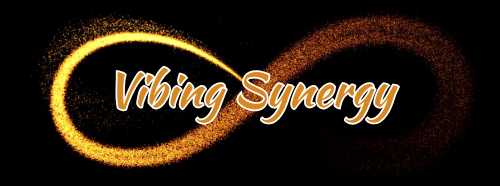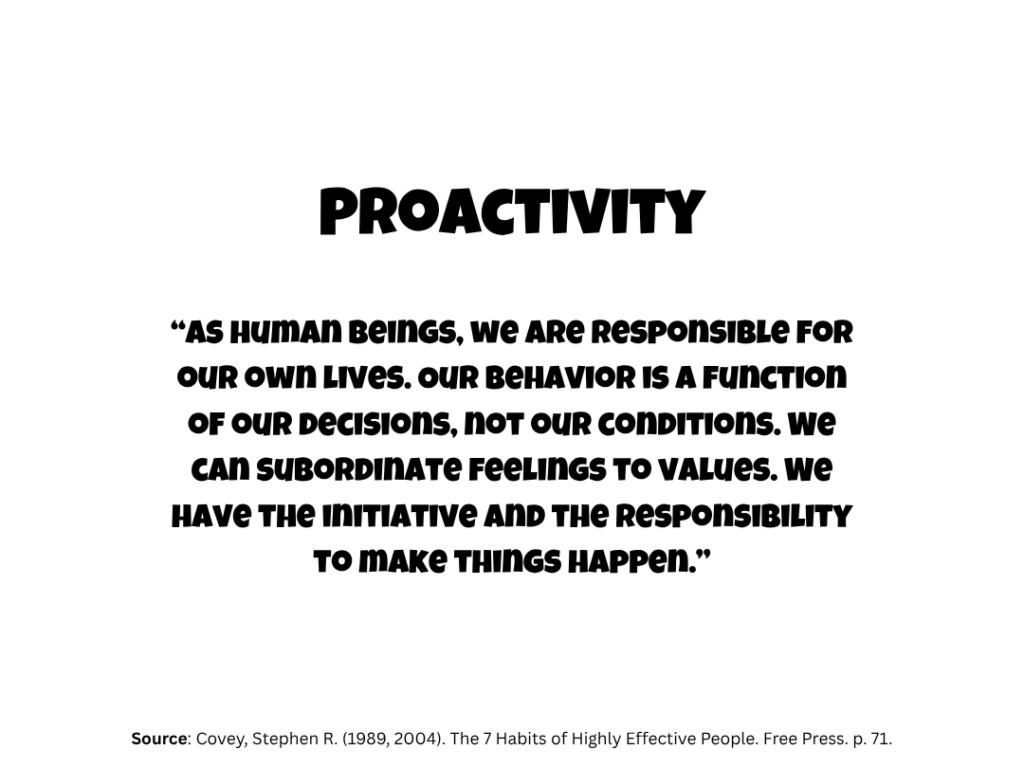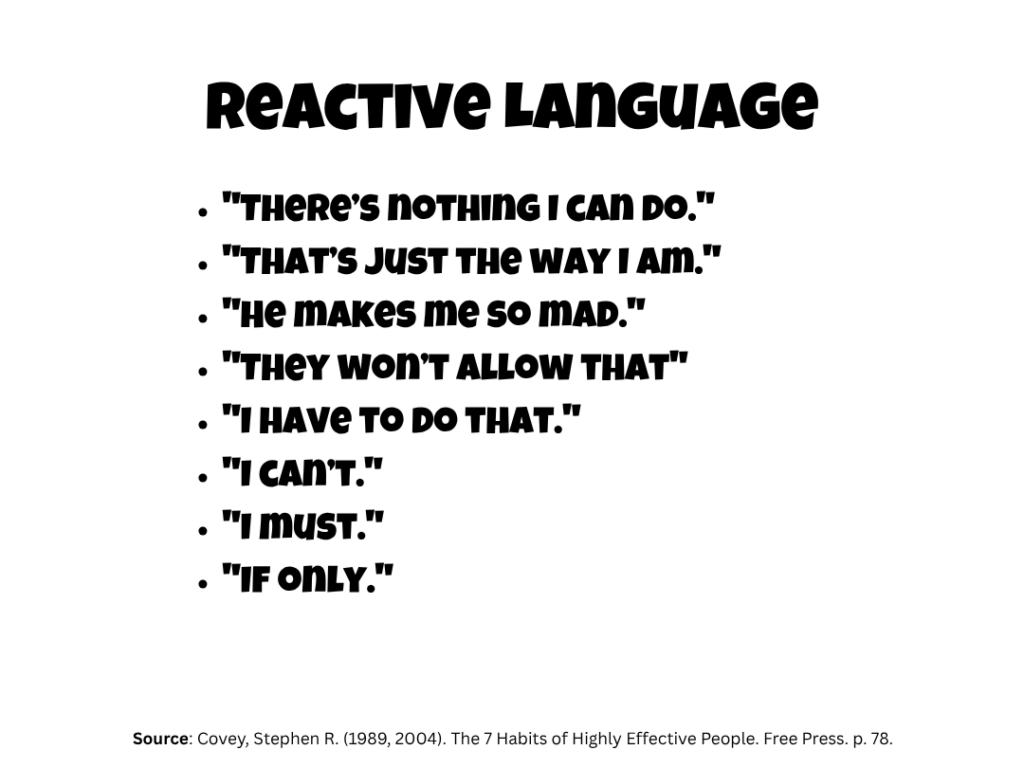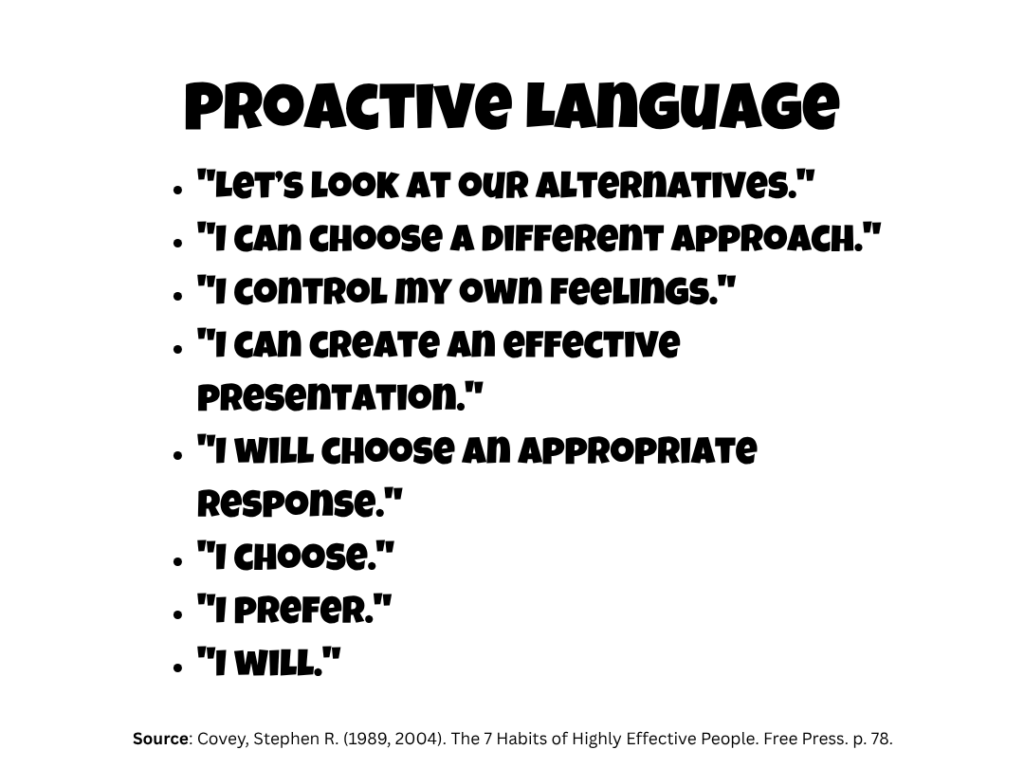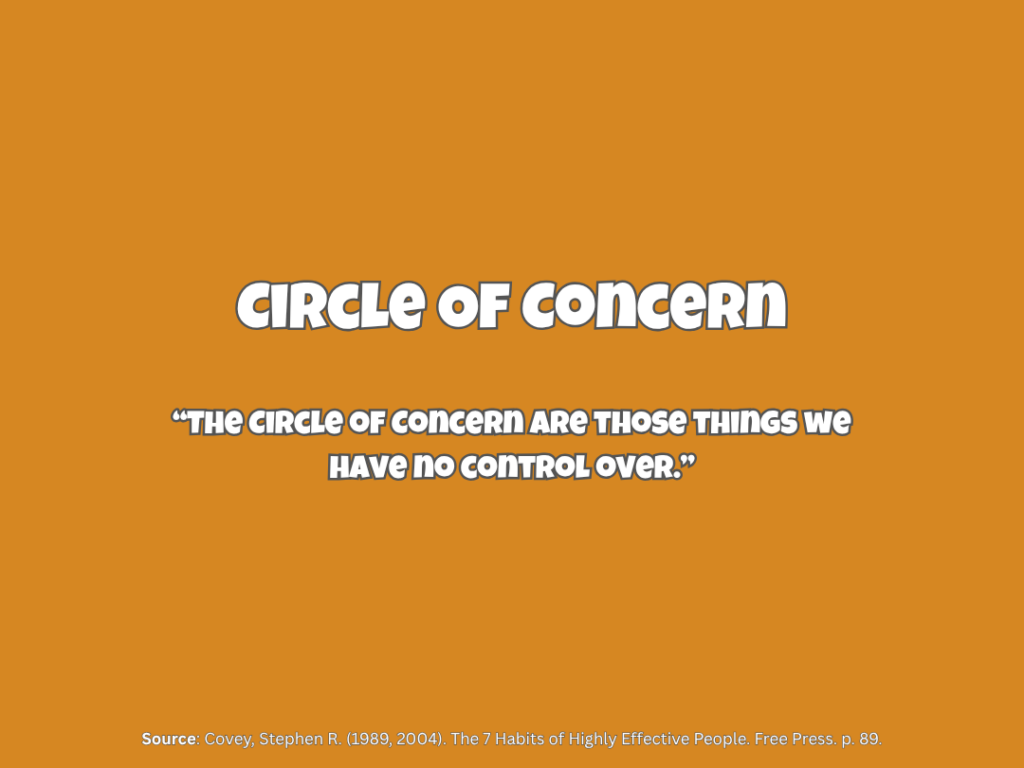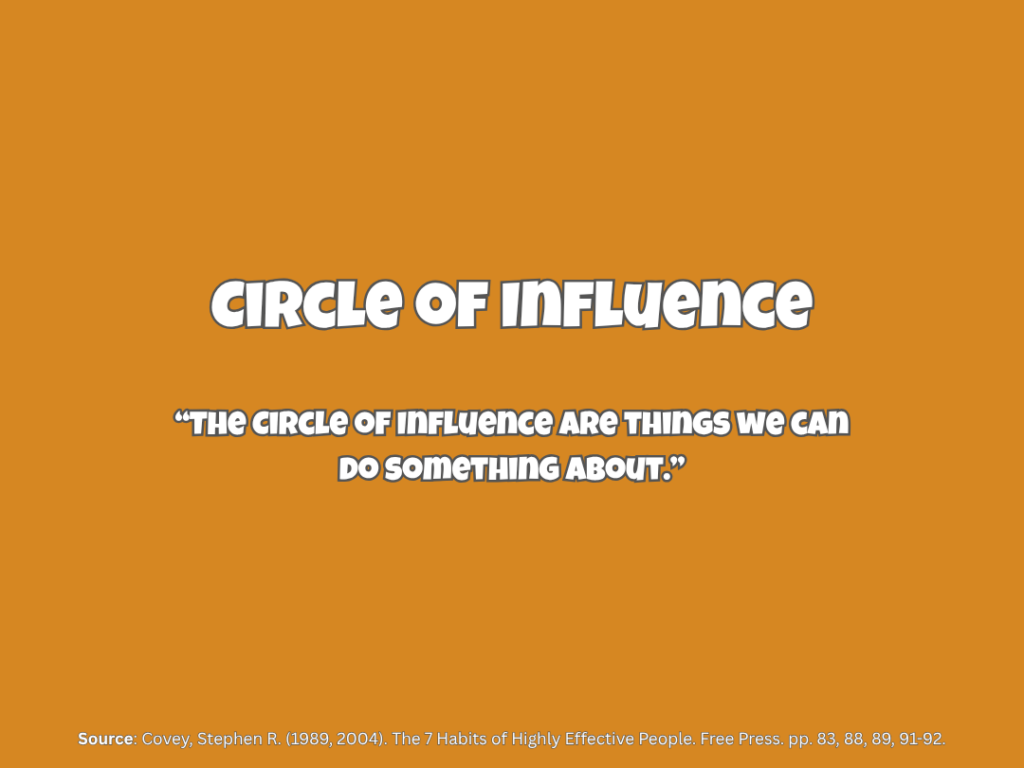Between stimulus and response, man has the freedom to choose.
Within the freedom to choose are those endowments that make us uniquely human. In addition to self-awareness, we have imagination— the ability to create in our minds beyond our present reality. We have conscience— a deep, inner awareness of right and wrong, of the principles that govern our behavior, and a sense of the degree to which our thoughts and actions are in harmony with them. And we have independent will— the ability act based on our self-awareness, free of all other influences.
Source: Covey, Stephen R. (1989, 2004). The 7 Habits of Highly Effective People. Free Press, p. 70.
When something happens, we can choose our response, our reaction to what has happened. With this freedom of choice is self-awareness–knowing ourselves and what we represent; standing up for our values, standards, and beliefs; not allowing the opinions of others to influence our thoughts and actions. Second, we have imagination, the ability to see beyond reality to create scenarios within our mind. Third, there’s our conscience–knowing right from wrong, the principles that guide our actions, and evaluating the synergy between those principles and our actions that are caused by our thoughts. Finally, we have an independent will to choose our actions according to our values, standards, and beliefs, not limited by all outside influences.
As human beings, we are responsible for our own lives. Our behavior is a function of our decisions, not our conditions. We can subordinate feelings to values. We have the initiative and the responsibility to make things happen.
Look at the word responsibility—“response-ability“— the ability to choose your response. Highly proactive people recognize that responsibility. They do not blame circumstances, conditions, or conditioning for their behavior. Their behavior is a product of their own conscious choice, based on values rather than a product of their conditions, based on feeling.
Reactive people are often affected by their physical environment. If the weather is good, they feel good. If it isn’t, it affects their attitude and their performance. Proactive people can carry their own weather with them. Whether it rains or shines, makes no difference to them. They are value driven; and if their value is to produce good quality work, it isn’t a function of whether the weather is conducive to it or not.
Reactive people are also affected by their social environment, by the “social weather.” When people treat them well, they feel well; when people don’t, they become defensive or protective. Reactive people build their emotional lives around the behavior of others, empowering the weaknesses of other people to control them. Reactive people are driven by feelings, by circumstances, by conditions, by their environment. Proactive people are driven by values— carefully thought about, selected and internalized values.
Proactive people are still influenced by external stimuli, whether physical, social, or psychological. But the response to the stimuli, conscious or unconscious, is a value-based choice or response.
Source: Covey, Stephen R. (1989, 2004). The 7 Habits of Highly Effective People. Free Press, pp. 71-72.
“Responsibility” is “the ability to choose our response.” We can allow things, people, and situations to affect how we think and feel that directly affects what we say and do; or, we can choose a response based on our values. We can choose an inner-based response to all that is happening around us and to us.
It’s not what happens to us, but our response to what happens to us that hurts us. Of course, things can hurt us physically or economically and can cause sorrow. But our character, our basic identity, does not have to be hurt at all. In fact, our most difficult experiences become the crucibles that forge our character and develop the internal powers, the freedom to handle difficult circumstances in the future and to inspire others to do so as well.
Source: Covey, Stephen R. (1989, 2004). The 7 Habits of Highly Effective People. Free Press, pp. 73.
Our mistakes and what happens to us do not determine who we are. Who we are, our identity, is displayed by the thoughts and actions we choose during these times. Times of crisis are the catalyst to our development and character to be able to handle tough times in the future.
